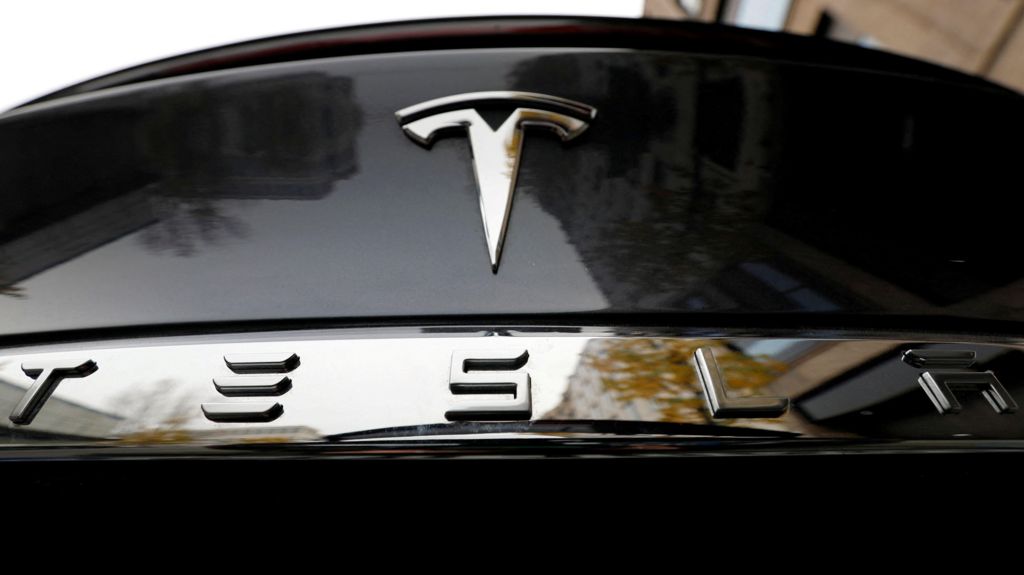
Wed, April 24, 2024 at 9:35 AM EDT
Billions more in profits are at stake for some vaccine makers as the U.S. moves toward dispensing COVID-19 booster shots to shore up Americans’ protection against the virus.
How much the manufacturers stand to gain depends on how big the rollout proves to be.
Exactly who should get a booster was a contentious decision as advisers to the Centers for Disease Control and Prevention spent two days this week poring over the evidence. CDC director Dr. Rochelle Walensky endorsed most of their choices: People 65 and older, nursing home residents and those ages 50 to 64 who have chronic health problems such as diabetes should be offered one once they’re six months past their last Pfizer dose. Those 18 and older with health problems can decide for themselves if they want a booster.
Still, the crisis is constantly evolving, and some top U.S. health officials expect boosters will be more broadly authorized in the coming weeks or months. And that, plus continued growth in initial vaccinations, could mean a huge gain in sales and profits for Pfizer and Moderna in particular.
“The opportunity quite frankly is reflective of the billions of people around the world who would need a vaccination and a boost,” Jefferies analyst Michael Yee said.
Wall Street is taking notice. The average forecast among analysts for Moderna’s 2022 revenue has jumped 35% since President Joe Biden laid out his booster plan in mid-August.
Most of the vaccinations so far in the U.S. have come from Pfizer, which developed its shot with Germany’s BioNTech, and Moderna. They have inoculated about 99 million and 68 million people, respectively. Johnson & Johnson is third with about 14 million people.
No one knows yet how many people will get the extra shots. But Morningstar analyst Karen Andersen expects boosters alone to bring in about $26 billion in global sales next year for Pfizer and BioNTech and around $14 billion for Moderna if they are endorsed for nearly all Americans.
Those companies also may gain business from people who got other vaccines initially. In Britain, which plans to offer boosters to everyone over 50 and other vulnerable people, an expert panel has recommended that Pfizer’s shot be the primary choice, with Moderna as the alternative.
Andersen expects Moderna, which has no other products on the market, to generate a roughly $13 billion profit next year from all COVID-19 vaccine sales if boosters are broadly authorized.
Potential vaccine profits are harder to estimate for Pfizer, but company executives have said they expect their pre-tax adjusted profit margin from the vaccine to be in the “high 20s” as a percentage of revenue. That would translate to a profit of around $7 billion next year just from boosters, based on Andersen’s sales prediction.
J&J and Europe’s AstraZeneca have said they don’t intend to profit from their COVID-19 vaccines during the pandemic.
For Pfizer and Moderna, the boosters could be more profitable than the original doses because they won’t come with the research and development costs the companies incurred to get the vaccines on the market in the first place.
WBB Securities CEO Steve Brozak said the booster shots will represent “almost pure profit” compared with the initial doses.
Drugmakers aren’t the only businesses that could see a windfall from delivering boosters. Drugstore chains CVS Health and Walgreens could bring in more than $800 million each in revenue, according to Jeff Jonas, a portfolio manager with Gabelli Funds.
Jonas noted that the drugstores may not face competition from mass vaccination clinics this time around, and the chains are diligent about collecting customer contact information. That makes it easy to invite people back for boosters.
Drugmakers are also developing COVID-19 shots that target certain variants of the virus, and say people might need annual shots like the ones they receive for the flu. All of that could make the vaccines a major recurring source of revenue.
The COVID-19 vaccines have already done much better than their predecessors.
Pfizer said in July it expects revenue from its COVID-19 vaccine to reach $33.5 billion this year, an estimate that could change depending on the impact of boosters or the possible expansion of shots to elementary school children.
That would be more than five times the $5.8 billion racked up last year by the world’s most lucrative vaccine _ Pfizer’s Prevnar13, which protects against pneumococcal disease.
It also would dwarf the $19.8 billion brought in last year by AbbVie’s rheumatoid arthritis treatment Humira, widely regarded as the world’s top-selling drug.
This bodes well for future vaccine development, noted Erik Gordon, a business professor at the University of Michigan.
Vaccines normally are nowhere near as profitable as treatments, Gordon said. But the success of the COVID-19 shots could draw more drugmakers and venture capitalists into the field.
“The vaccine business is more attractive, which, for those of us who are going to need vaccines, is good,” Gordon said.
© 2021 The Canadian Press


Oil companies planning to ship crude on the expanded Trans Mountain pipeline in Canada are concerned that the project may not begin full service on May 1 but they would be nevertheless obligated to pay tolls from that date.
In a letter to the Canada Energy Regulator (CER), Suncor Energy and other shippers including BP and Marathon Petroleum have expressed doubts that Trans Mountain will start full service on May 1, as previously communicated, Reuters reports.
Trans Mountain Corporation, the government-owned entity that completed the pipeline construction, told Reuters in an email that line fill on the expanded pipeline would be completed in early May.
After a series of delays, cost overruns, and legal challenges, the expanded Trans Mountain oil pipeline will open for business on May 1, the company said early this month.
“The Commencement Date for commercial operation of the expanded system will be May 1, 2024. Trans Mountain anticipates providing service for all contracted volumes in the month of May,” Trans Mountain Corporation said in early April.
The expanded pipeline will triple the capacity of the original pipeline to 890,000 barrels per day (bpd) from 300,000 bpd to carry crude from Alberta’s oil sands to British Columbia on the Pacific Coast.
The Federal Government of Canada bought the Trans Mountain Pipeline Expansion (TMX) from Kinder Morgan back in 2018, together with related pipeline and terminal assets. That cost the federal government $3.3 billion (C$4.5 billion) at the time. Since then, the costs for the expansion of the pipeline have quadrupled to nearly $23 billion (C$30.9 billion).
The expansion project has faced continuous delays over the years. In one of the latest roadblocks in December, the Canadian regulator denied a variance request from the project developer to move a small section of the pipeline due to challenging drilling conditions.
The company asked the regulator to reconsider its decision, and received on January 12 a conditional approval, avoiding what could have been another two-year delay to start-up.
By Tsvetana Paraskova for Oilprice.com
More Top Reads From Oilprice.com:
Tsvetana is a writer for Oilprice.com with over a decade of experience writing for news outlets such as iNVEZZ and SeeNews.
|
|


Tesla has announced its profits fell sharply in the first three months of the year to $1.13bn (£910m), compared with $2.51bn in 2023.
It caps a difficult period for the electric vehicle (EV) maker, which – faced with falling sales – has announced thousands of job cuts.
Boss Elon Musk remains bullish about its prospects, telling investors the launch of new models would be brought forward.
Its share price has risen but analysts say it continues to face significant challenges, including from lower-cost rivals.
The company has suffered from falling demand and competition from cheaper Chinese imports which has led its stock price to collapse by 43% over 2024.
Figures for the first quarter of 2024 revealed revenues of $21.3bn, down on analysts’ predictions of just over $22bn.
But the decision by Tesla to bring forward the launch of new models from the second half of 2025 boosted its shares by nearly 12.5% in after-hours trading.
It did not reveal pricing details for the new vehicles.
However Mr Musk made clear he also grander ambitions, touting Tesla’s AI credentials and plans for self-driving vehicles – even going as far as to say considering it to be just a car company was the “wrong framework.”
“If somebody doesn’t believe Tesla is going to solve autonomy I think they should not be an investor,” he said.
Such sentiments have been questioned by analysts though, with Deutsche Bank saying driverless cars face “technological, regulatory and operational challenges.”
Some investors have called for the company to instead focus on releasing a lower price, mass-market EV.
However, Tesla has already been on a charm offensive, trying to win over new customers by dropping its prices in a series of markets in the face of falling sales.
It also said its situation was not unique.
“Global EV sales continue to be under pressure as many carmakers prioritize hybrids over EVs,” it said.
Despite plans to bring forward new models originally planned for next year the firm is cutting its workforce.
Tesla said it would lose 3,332 jobs in California and 2,688 positions in Texas, starting mid-June.
The cuts in Texas represent 12% of Tesla’s total workforce of almost 23,000 in the area where its gigafactory and headquarters are located.
However, Mr Musk sought to downplay the move.
“Tesla has now created over 30,000 manufacturing jobs in California!” he said in a post on his social media platform X, formerly Twitter, on Tuesday.
Another 285 jobs will be lost in New York.
Tesla’s total workforce stood at more than 140,000 late last year, up from around 100,000 at the end of 2021, according to the company’s filings with US regulators.
The car firm is also facing other issues, with a struggle over Mr Musk’s compensation still raging on.
On Wednesday, Tesla asked shareholders to vote for a proposal to accept Mr Musk’s compensation package – once valued at $56bn – which had been rejected by a Delaware judge.
The judge found Tesla’s directors had breached their fiduciary duty to the firm by awarding Mr Musk the pay-out.
Due to the fall in Tesla’s stock value, the compensation package is now estimated to be around $10bn less – but still greater than the GDP of many countries.
In addition, Tesla wants its shareholders to agree to the firm being moved from Delaware to Texas – which Mr Musk called for after the judge rejected his payday.





|
|
Tech stocks rose on Wednesday, outstripping the broader market as investors welcomed Tesla’s (TSLA) cheaper car pledge and waited for the next rush of corporate earnings.
The Nasdaq Composite (^IXIC) rose roughly 0.6%, coming off a sharp closing gain. The S&P 500 (^GSPC) was up 0.2%, continuing a rebound from its longest losing streak of 2024, while the Dow Jones Industrial Average (^DJI) fell 0.1%.
Tesla shares jumped nearly 12% after the EV maker’s vow to speed up the launch of more affordable models eclipsed its quarterly earnings and revenue miss. That cheered up investors worried about growth amid a strategy shift to robotaxis and the planned cancellation of a cheaper model.
The results from the first “Magnificent Seven” to report have intensified the already high hopes for Big Tech earnings, that the megacaps can revive the rally in stocks they powered. The spotlight is now on Meta’s (META) report due after the market close, as the Facebook owner’s shares rose after the Senate voted for a potential ban on rival TikTok. Microsoft (MSFT) and Alphabet (GOOG) next up on Thursday.
Meanwhile, Boeing (BA) reported better than expected first quarter results before the opening bell with a loss per share of $1.13, narrower than the $1.72 estimated by Wall Street. Shares rose about 2% in morning trade.
Live6 updates









Remnants of bird flu virus found in pasteurized milk, FDA says
Mayor's youth advisory council seeks submissions for art gala – SooToday




Bird flu virus found in grocery milk as officials say supply still safe




Taxes should not wag the tail of the investment dog, but that’s what Trudeau wants




iN PHOTOS: Nature lovers celebrate flora, fauna for Earth Day in Kamloops, Okanagan | iNFOnews | Thompson-Okanagan's News Source – iNFOnews
Peel police chief met Sri Lankan officer a court says ‘participated’ in torture – Global News
An exhibition with a cause: Montreal's 'Art by the Water' celebrates 15 years – CityNews Montreal
'Lost' Gustav Klimt painting to be auctioned – BBC.com



